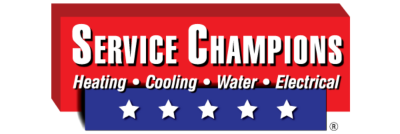What Ocean Air Does To Your HVAC System?

December 8, 2017
When you live in the Bay Area, your HVAC system faces unique weather conditions. With proximity to the ocean comes necessary precautions to protect the expensive heating and air equipment you depend on. You may not have anticipated how ocean air can lead to corrosion and wreak havoc on your heat pumps. Being coastal, learning how the salt air affects your HVAC system will help you increase the longevity and performance of your unit.
As a Bay Area air conditioning company, we can attest to the impact of salty air on your HVAC unit. We all know that vehicles and other metal machinery face corrosion when left outdoors; your air conditioning unit is no exception. Without proper care and prevention, a brand new HVAC unit with an expected lifespan of 15-20 years can wear out in a third of that time.
Coastal corrosion to your air conditioner can be costly, but we have tips on how to extend the lifespan of your HVAC system and protect your outdoor unit from damage.
What type of unit you buy
There are some HVAC equipment companies that have coastal homeowners in mind. With research and recommendations from your local professional HVAC company, you can pick a unit built to resist salt-corrosion from the start. By installing a corrosion-proof unit, you’ll get a warranty that’s specific to coastal homes, where HVAC systems face more extensive damage. Look for units that come with warranties and coverage. Service Champions can answer any questions you have about air conditioner installation and replacement. We can help you find the best, corrosion-resistant unit for your coastal home.
The location of your unit
The placement of your outdoor HVAC unit can make all of the difference. Proper installation is key to preserving your outdoor unit. Professional technicians are knowledgeable about the best placement for a unit in a coastal home. For example, use your home as a barrier to the ocean winds in order to combat corrosion and salt build-up. Do not enclose your outdoor unit because you want rain water to be able to access it. When it rains, the unit is naturally rinsed of salt build-up. Salt rinses and cleanings are also done during regularly scheduled maintenance by HVAC professionals.
Bi-annual maintenance
Twice a year, a professional technician should take a look at your unit for signs of wear and tear. During maintenance, a technician will perform a salt rinse and cleaning that specifically protects your unit from the ocean air. Ensuring that your condenser coils are clean is another greatly effective measure, as aluminum fins can degrade more quickly in coastal climates. Professional maintenance, once in the spring and once in the fall, is important for HVAC systems in any climate, but those in coastal communities should prioritize preventative, money-saving maintenance.
Checklist for Your Coastal HVAC Unit:
- Purchase and install a low-corrosive unit in an optimal location
- Ensure a cleared perimeter of 2 to 3 feet around your outdoor condenser unit
- Sign up for bi-annual preventative maintenance by a professional HVAC technician
- Change your air filters regularly
Service Champions is always here to protect your HVAC system from the effects of ocean air. Bay Area homeowners in Sacramento, Rocklin, Pleasanton, Concord, San Jose and more can count on us for full-service HVAC maintenance and preventative services to extend the lifespan of your unit and upkeep peak performance despite our salty-air conditions.
